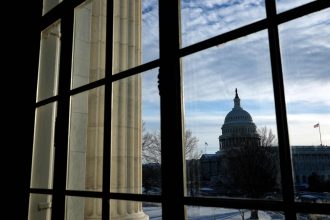A major legal milestone has been reached in the ongoing battle between privacy and surveillance. A U.S. federal court has ordered Israel’s NSO Group to permanently stop targeting WhatsApp, following a long-standing lawsuit filed by Meta Platforms — the parent company of WhatsApp.
In a 25-page ruling, U.S. District Court Judge Phyllis Hamilton issued a permanent injunction against NSO Group, prohibiting it from breaking into WhatsApp or exploiting vulnerabilities in the platform. This decision represents a huge victory for digital privacy advocates and a sharp blow to one of the world’s most notorious spyware manufacturers.
However, the judge also reduced NSO’s financial penalty, cutting punitive damages from approximately US$167 million (RM705 million) to US$4 million. While the damages were slashed, the court’s injunction could still threaten NSO’s very existence.
For years, the NSO Group’s spyware tool Pegasus has been accused of facilitating human rights abuses, allowing governments and agencies to monitor journalists, activists, and political figures. The tool exploits weaknesses in popular software systems — and WhatsApp has been one of its primary targets.
NSO argued that the ruling could “force NSO out of business,” claiming that restrictions on using its technology would cripple operations. Nevertheless, Meta and privacy advocates hailed the decision as a victory for user safety and civil liberties.
“Today’s ruling bans spyware maker NSO from ever targeting WhatsApp and our global users again,” said Will Cathcart, head of WhatsApp. “We applaud this decision that comes after six years of litigation to hold NSO accountable for targeting members of civil society.”
NSO responded by highlighting that its tools are used to fight serious crimes and terrorism. The company said it welcomed the 97% reduction in damages and clarified that the injunction does not restrict its customers, who, it claims, continue using the technology for public safety purposes.
Recently, NSO was reportedly acquired by a group led by Hollywood producer Robert Simonds, though further details remain under wraps.
This ruling sends a strong message: no entity, no matter how powerful, is above the law when it comes to digital privacy. It’s a reminder that in today’s connected world, the battle between surveillance and human rights continues — and that the fight for online safety is far from over.








